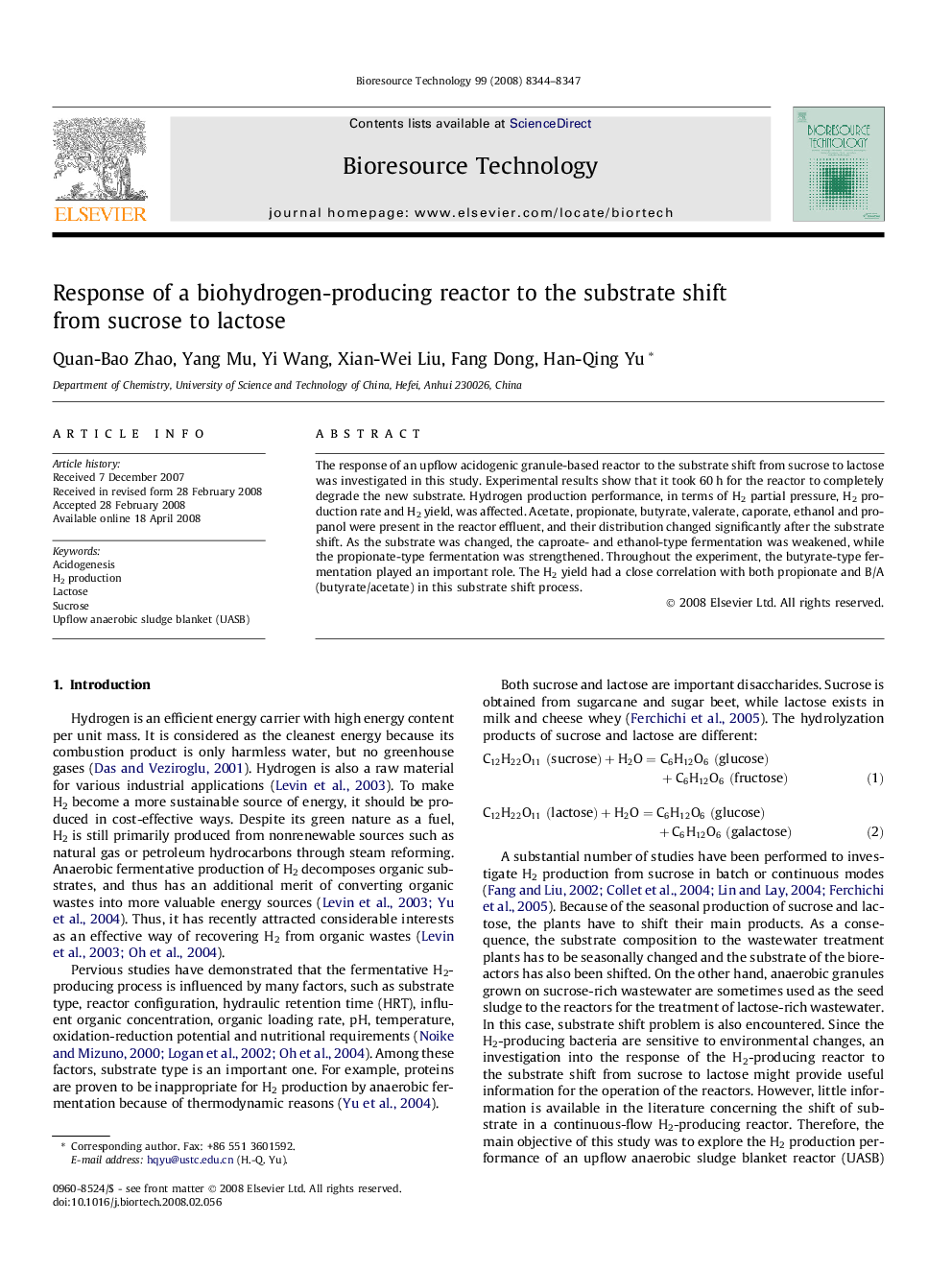| Article ID | Journal | Published Year | Pages | File Type |
|---|---|---|---|---|
| 684575 | Bioresource Technology | 2008 | 4 Pages |
The response of an upflow acidogenic granule-based reactor to the substrate shift from sucrose to lactose was investigated in this study. Experimental results show that it took 60 h for the reactor to completely degrade the new substrate. Hydrogen production performance, in terms of H2 partial pressure, H2 production rate and H2 yield, was affected. Acetate, propionate, butyrate, valerate, caporate, ethanol and propanol were present in the reactor effluent, and their distribution changed significantly after the substrate shift. As the substrate was changed, the caproate- and ethanol-type fermentation was weakened, while the propionate-type fermentation was strengthened. Throughout the experiment, the butyrate-type fermentation played an important role. The H2 yield had a close correlation with both propionate and B/A (butyrate/acetate) in this substrate shift process.
